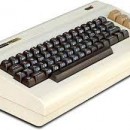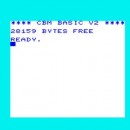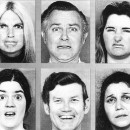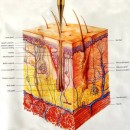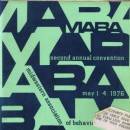The Language of Gender Variance (2014)
In 1998 Jamison Green, Jason Cromwell, and I distributed a questionnaire asking transgendered and transsexual people their reactions to selected terms and asking them what they did and did not wish to be called. One hundred thirty-seven questionnaires were returned, of which 134 were usable responses. We also conducted focus groups in September and October 2001 at the Southern Comfort and Fantasia Fair conferences to discuss our project and ask what message(s) about language usage participants would like professionals to hear. Ten years later we again distributed the survey and received 2651 responses. In our paper, we present our findings.
Read MoreThe Language of Gender Variance (2001)
This paper presents data from a national survey of attitudes of transpeople about various and assorted terms which had been used to describe them. The survey was done in 1998. Ten years later we again surveyed transpeople about their preference for terminology. The resulting paper is now under review for consideration for publication in the International Journal of Transgenderism.
Read MorePsychology as Art; Psychology as Science; Psychology as Pseudoscience (1992)
Holly Boswell did a good job of critiquing Glenn Humphrey’s doctoral dissertation. I was outraged enough by Humphrey’s analysis to critique it myself. I was not gentle.
Read MoreSIX BITS 1983)
I wrote the augmentative communication computer program SIX BITS for a man with normal intelligence and quadraplegia that affected his speech, making it impossible for others to understand him. He used the program for years; earlier he had a Morse-code based device for which parts could no longer be obtained. Staff at his facility trained him to use the program. The VIC would remain on all day.
Read MoreMy Major Area Paper, Vanderbilt University (1994)
This is my major area paper for the Ed.D. at George Peabody College of Vanderbilt University.
Read MoreMy Master’s Thesis (1979)
For my thesis, I investigated the feeding behavior of the common garter snake, Thamnophis sirtalis sirtalis, in the laboratories of Gordon Burghardt at the University of Tennessee in Knoxville.
Read MoreUsing the TRS‑80 Model 100 Portable Computer as a Data Collection Device (1985)
BOSCO, The Behavioral Observation System— COmputerized, allows the TRS-8O Model 100 portable computer to be used as a relatively inexpensive data collection device instead of more expensive dedicated devices such as ElectroGeneral’s DATAMYTE and Observational Systems’ OS-3. BOSCO, a program written in BASIC for the Model 100 with expanded memory, has been used to collect real-time behavioral data in field research studies.
Read MoreBOSCO (Behavioral Observation System, COmputerized) Operations Manual (1985)
The behavioral data gathering and analysis program Behavioral Observation System, COmputerized is a program written in the BASIC programming language for the TRS-80 Models 100 and 102 portable computers. I am the sole author. It was used extensively by researchers at the Special Education Department at George Peabody College, which is a part of Vanderbilt University.
Read MoreCollecting and Analyzing Continuous Behavioral Data with the TRS-80 Model 100/102 Portable Laptop Computer (1989)
The behavioral data gathering and analysis program Behavioral Observation System, COmputerized is a program written in the BASIC programming language for the TRS-80 Models 100 and 102 portable computers. I am the sole author. It was used extensively by researchers at the Special Education Department at George Peabody College, which is a part of Vanderbilt University.
Read MoreMoving Prey Attracts Snakes (1977)
Chemical cues are of great importance-in the food-finding behavior of snakes. However, visual cues may direct the attacks of foraging snakes, especially if the snakes have been alerted by olfactory cues. In the present experiments, testing chambers were saturated with prey odor, after which movement of prey objects of a constant size was varied quantitatively across a wide range of speeds.
Read MoreThe HBIGDA Standards of Care: Results of a Survey of Consumers (1994)
We present a preliminary analysis of the data for approximately 300 questionnaires. The find the majority of respondents believe there should be Standards of Care and support the various safeguards (like the real-life test) of the HBIGDA Standards.
Read MoreEffects of a Learning Task and of Forewarning Upon Responses to Ambiguous Figures (1975)
This was my first-ever research paper. And yes, it shows.
Read MoreUsing a Discrimination Task to Teach Scanning to Severely Physically Impaired Non-Vocal Children (1984)
“All a Board” is an augmentative communication computer program which was designed by the author to allow individuals with very severe physical handicaps to communicate their wants and needs to others, using a single switch. It serves the same purpose as any communication board, but requires much less physical ability.
Read MoreThe Use of Microcomputers as Augmentative Communication Devices (1984)
For persons with severe motor impairments which limit their ability to move as well as to speak, computers are of importance as communication aids. However, computer-based communication devices have heretofore been expensive and often crude. The proliferation of reliable, low-cost personal computers has solved the hardware problem, but communication ware is frequently inadequate or inefficient.
Read MoreUsing a Bar Code Reader to Enter Behavioral Observations (1988)
Our impression is that use of a computer-based bar code readeris a suitable method for collecting some types of behavioral data. The necessity of looking away from the keyboard suggests the BCR may be more practical for collection of interval rather than continuous data. The provision of mechanical guides would provide tactile cues for positioning the BCR and might reduce the need to look at the scanning sheet.
Read MoreThe Ability of Mentally Retarded Persons To Judge Facial Expressions From Photographs (1986)
Read MoreUsing a Microcomputer to Collect Behavioral Data on an Augumentative Communication Program (1989)
We added automatic data collection routines to a microcomputer-based augmentatative device which has been used for more than five years by an adult male nonretarded resident of Greene Valley Developmental Center. The data were collected by the computer, without the necessity of a human observer. Data are presented for frequency and length of use, number of switch closures, and accesses of output devices.
Read MoreThe Ability of Mentally Retarded Adults to Judge Facial Expressions From Photographs (1983)
The ability of mentally retarded persons to recognize facial expressions is not well known. In the present study, Carroll Izard’s photo recognition technique was applied to a sample of institutionalized mentally retarded adults, with their responses compared to those of nonretarded adults to determine: 1) if retarded adults can identity emotive facial expressions, and, 2) which expressions they can best recognize.
Read MoreElectrolysis in Transsexual Women: A Retrospective Look at Frequency of Treatment in Four Cases (1997)
This study is, so far as I am aware, the only empirical study of electrolysis in transsexuals.
Read MorePreschool Children’s Performance on Two Measures of Emotional Expressiveness Compared to Teacher Ratings (1982)
Read MoreResponse Deprivation, Reinforcement, and Punishment (1978)
Dr. Malone was brilliant and a bit of a rascal. Once I let him know I would be late for class on the history of psychology. He okayed it, but when I tiptoed into the the back of the huge classroom he called me out. “Dallas! How nice of you to come!”
Read MoreOutcome of Five Cases of Transsexualism (1997)
Why have there been few studies outside of clinical settings? Is it because non-clinical populations of transsexuals are unavailable? I think not. Perhaps there are no such follow-up studies because non-clinicians have not had funding sufficient to conduct such studies. Or maybe it’s just that nobody has bothered to look.
Read MoreResults of a Questionnaire on the Standards of Care (1995)
We prepared and distributed a questionnaire which solicited the opinions of transgendered and transexual persons about the HBIGDA Standards of Care. In this paper, we present some results of that survey and discuss some of the issues involved in imposing such standards on transexual bodies.
Read More



